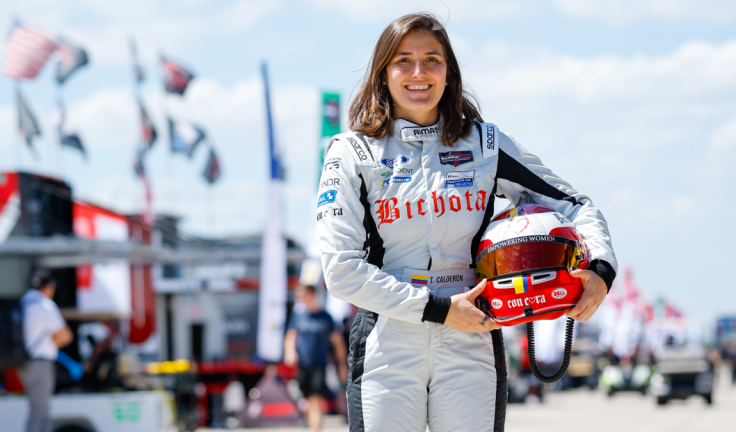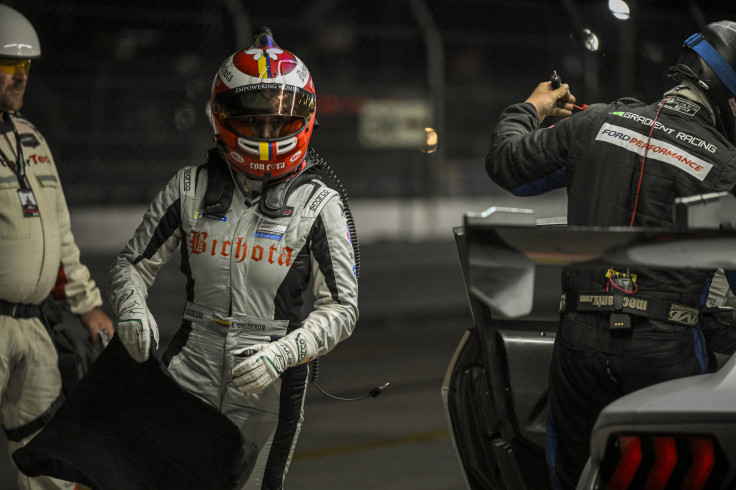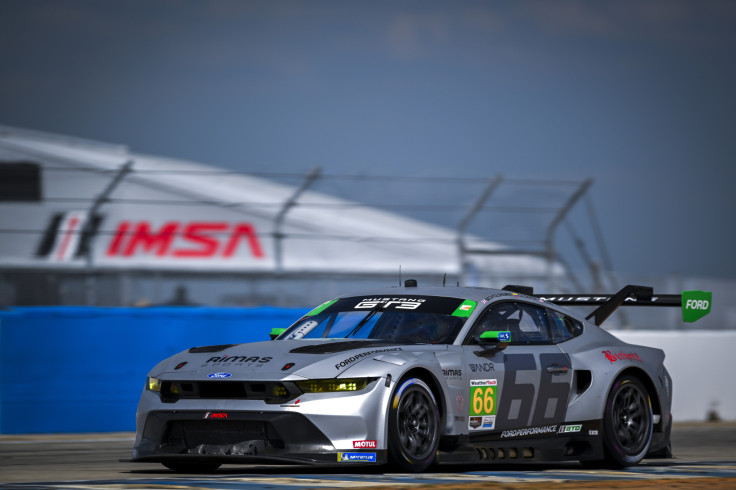
For more than a century, motorsports have captivated sports lovers around the world. From the first recorded car race in the late 19th century to high-performance, hybrid-powered machines racing today, this world has always been defined by innovation.
But historically, there is one area where progress has fallen short: the inclusion of women.
Since Formula 1 was established in 1950, only five women have ever competed in a Grand Prix. The most recent was Giovanna Amati, an Italian driver who attempted to qualify for three races in 1992 with the Brabham team. Although she did not make it onto the starting grid, she remains the last woman to take part in a Formula 1 race weekend.
While opportunities for women in motorsport remain far more limited than for their male counterparts, the sport is undergoing a meaningful shift toward inclusion. According to the Formula 1's 2025 Global Fan Survey, women now account for three out of every four new fans. Most are young, with nearly half of Gen Z respondents identifying as women.
This shift did not happen overnight. It is the result of many pioneering women in racing who pushed for progress, often with little recognition. One of them is Tatiana Calderón, a Colombian racing driver who has spent more than 23 years breaking barriers in the world of racing.
Born in Bogotá, Calderón began competing at the age of nine and has been in love with speed and adrenaline ever since. In an exclusive interview with The Latin Times, she talked about her journey, the challenges she has faced, and what she hopes to change in motorsport.
"When I was nine years old, my sister Paula took me to a track near our home in Bogotá," Calderón recounted. "In the first five minutes I spent there I fell in love with speed, with adrenaline, and with that curiosity you feel when you are driving and you do not know how far you can push yourself. I was captivated by all the sensations you get inside a racing car. From a young age I watched Formula 1 races and dreamed of one day reaching the elite of motorsport."

Her journey has not been an easy one, as she had to move away from her native country when she was 17. "I suffered a lot at first since I was not used to being away from my parents. I didn't even know how to cook so I had to learn many life skills. I also had to adapt to how Europeans work, since it is very different from how we do things in Latin America," she said.
Motorsport has never been deeply rooted in Colombian culture, so Calderón had to go abroad to prove herself. She said that it wasn't until a championship in the United States that she earned the credibility and support needed from her family to fully pursue her career as a racing driver.
"My first major victory was in the United States, in a championship called Rising Stars of Karting. No woman had ever won that championship. I won, and it happened just when I needed to convince my parents to leave my studies and dedicate myself to racing. That victory gave me the credibility to convince them," she said.
"Another of the most beautiful moments in my career was a podium in British Formula 3, where current champions like Lewis Hamilton and Nico Rosberg have also raced. I was the first woman to get a podium there. Those moments were very important for my career," she added.
Calderón went on to say that one of the most difficult challenges she has faced throughout her career has been earning the respect and credibility needed to prove that women belong in motorsports.
"Credibility in this world is still the most important thing," she said. "Being a woman and being Latina has made it twice as hard to earn my place, because people don't view Latin America as a region with a strong history in motorsport. Now, with drivers like Sergio Pérez and Franco Colapinto, we are getting more space and being seen differently. But when I started, it wasn't like that. Earning that credibility and respect as a woman in this sport has been very difficult."
During the interview, Calderón also revealed that over the course of her career, she has faced uncomfortable and discriminatory moments simply for being a woman.
"You often hear comments like, 'Wow, for a woman, she's pretty fast,' or things like that," she recalled. "I remember one teammate being told, 'What's wrong with you? The girl is faster than you through the high-speed corners. Where did you leave your balls?' That kind of thing. I think people often don't realize how deeply rooted these stereotypes are. I've heard many comments like that throughout my career, but in the end, they've only motivated me more. We need to start calling out these attitudes and treating them with the seriousness they deserve—because that's the only way we'll change the culture."
When asked about the surge of interest women have shown in racing in recent years, Calderón said she remains surprised by the growing number of female fans attending races. Yet, she cautions that despite this progress, certain areas of the sport remain stuck in old patterns.
"I've seen an impressive change in the last few years," Calderón said. "Nowadays, when I go to a circuit, I think, 'Wow, look at how many women are here.' Women already make up 40 percent of the global fan base—even without having any female drivers competing in Formula 1. Just imagine what will happen when a woman gets that chance!"
However, Calderón emphasized that visibility alone isn't enough. She explained that female participation and opportunities to win are still limited, and this is where motorsport has much work to do to become truly inclusive.
"We still feel stuck because we want to participate and win," she said. "What a woman needs to perform at her best is very different from what a man needs, and that knowledge simply doesn't exist yet."
She also pointed out how motorsport is highly dependent on the car you drive, and unfortunately, cars and training methods have historically been designed with men in mind.

"A woman could be a winning horse, but we have never been seen that way," Calderón said. "You can be a great driver, but if you don't have a good car, you're not going to win. We need to consider other factors like training styles for women and the fact that race cars aren't built to fit women's measurements. We know what works for men in Formula 1, but we don't yet know what a woman needs to perform at her highest potential."
She challenged the commonly asked question about when a woman will be ready to compete in Formula 1, flipping it instead.
"People often ask, 'When will a woman be ready to race in Formula 1?' But I believe it should be the other way around: When will Formula 1 be ready to give a woman a chance?"
Despite all the hurdles and the years spent strengthening both her physical and mental skills, Calderón says the journey has been worth it.
Her story is now the subject of a children's book, La niña más veloz que el viento ("The Girl Faster Than the Wind"), aimed at inspiring and empowering a new generation of girls to pursue whatever path they choose.
"All the proceeds from the book go to a foundation called Juego de Niñas, which launched an education program in Colombia focused on breaking down gender stereotypes," Calderón said.
"It's already had a huge impact — not just on the children, but on their families and teachers as well. It's something that's really motivated me to keep trying to create a positive impact in sports and in society."
For Calderón, that impact has been one of the most meaningful parts of her career.
"It's been so special to connect with families who tell me I inspired their daughters to become drivers, or even just to chase something they were once told they couldn't do. That kind of feedback motivates me and makes me feel truly grateful."
© 2025 Latin Times. All rights reserved. Do not reproduce without permission.






